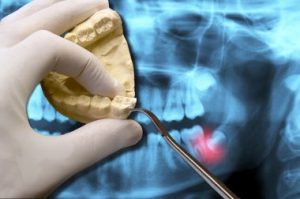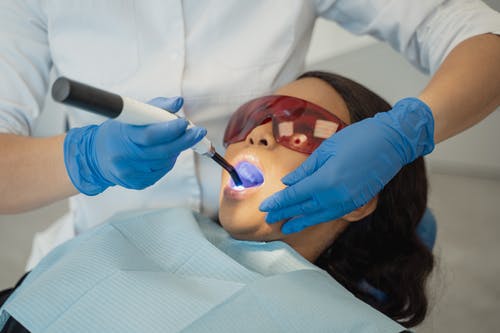Wisdom teeth are mainly the third and final set of molars that developed in your jaw. They are commonly referred to as wisdom teeth because they are the last set of teeth that break out or erupt, and it is often at the time we have come of age and much wiser.
Wisdom teeth are the last teeth to develop in your jaws, and this is due because of lack of space for them to develop into the correct position like the rest of the teeth.
The common reasons why you may need to remove your wisdom tooth include overcrowding of the teeth, pains, decay, and cavity formation. These problems often arise because wisdom teeth are located in the jaw, making it hard for them to form properly, which often results in tooth impaction.
An impacted wisdom tooth can result in severe health problems, including causing damage to other teeth and gum disease. Other health problems may include dry socket, cysts, and benign tumors. When your wisdom tooth is impacted, there is only one solution is through removal. There some vital health benefits of having wisdom teeth removed, so you can consider getting a wisdom teeth removal.
Before undergoing wisdom tooth removal, there are certain things you will have to know to prepare you for the surgery;

What to expect before the surgery
First of all, your oral surgeon or dentist will talk with you extensively regarding tooth removal, especially the type of procedure and use of anaesthesia. It also includes any questions you might have, including side effects. You’ll be required to provide your medical history to know if any underlying health issues may affect the surgery. After, you’ll turn book an appointment for your wisdom teeth surgery.

What to expect during the surgery
Wisdom teeth surgery doesn’t take much time. It typically lasts about 4t minutes. The whole tooth removal process will be painless as you’ll be placed injected with anesthesia to numb the pain.
Once the anesthesia sets in, the surgeon will cut your cums to extract the wisdom teeth using dental surgical tools. After, he will stitch the wounds so your gums can start healing quickly. You won’t need to come back for the stitches to be removed as they will dissolve independently. After the gum have been stitched up, your surgeon will then wake you up.
What to expect after surgery
You may feel some pain and swell around the site the wisdom tooth was extracted. However, if the pain and swelling persist after a week or two, this professional Dentist in rockefeller center emphasizes that you should have it checked by a dental expert as soon as possible.
Also, you may feel a small amount of blood in your mouth. You will be prescribed painkillers or other medicine to manage the pain for the pain and discomfort. The wisdom teeth surgery recovery time can take up to 2 weeks to get better after the surgery.
You must follow the instructions given by the surgeon to infecting the removal site or complicating it.
For example, you’ll be advised not to brush your teeth or since your mouth for 24 hours to avoid hurting the gum. Another case is you may be advised to rinse your blood using saltwater and hold till the water leaves your mouth on its way.
After two or three days, you can then resume brushing, rinsing normally, and flossing. You should also be cautious of eating heavy foods around the site the tooth was removed.








